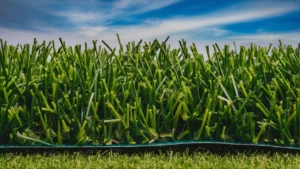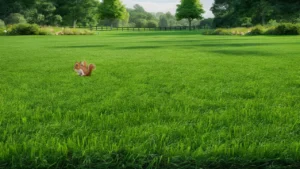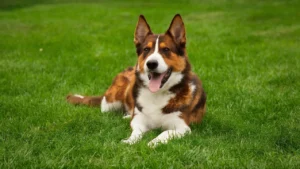
The Rise of Artificial Grass: A Comprehensive Guide
1. Introduction to Artificial Grass
2. Understanding Tuda Grass, Easi Grass, and Top Turf
3. Choosing the Right Artificial Grass Contractor
4. Benefits of Artificial Grass
5. Installation Process of Artificial Grass
6. Maintenance Tips for Artificial Grass
7. Cost Comparison: Artificial Grass vs Natural Grass
8. Environmental Impact of Artificial Grass
9. Frequently Asked Questions about Artificial Grass
- What is the lifespan of artificial grass?
- Can artificial grass be installed on any surface?
- Is artificial grass pet-friendly?
- How does artificial grass affect drainage?
- Is artificial grass suitable for commercial use?

The Rise of Artificial Grass: A Comprehensive Guide
Artificial grass has become increasingly popular in recent years as a low-maintenance alternative to natural grass. With advancements in technology, artificial grass now closely resembles the look and feel of real grass, making it a desirable option for homeowners and businesses alike. In this guide, we’ll delve into the world of artificial grass, exploring different types such as Tuda Grass, Easi Grass, and Top Turf, how to choose the right contractor, its benefits, installation process, maintenance tips, cost comparison, and environmental impact.
1. Introduction to Artificial Grass
Artificial grass, also known as synthetic turf, is made from synthetic fibers designed to mimic the appearance and texture of natural grass. It was initially developed for use in sports arenas but has since gained popularity in residential and commercial landscaping due to its durability and low maintenance requirements.
2. Understanding Tuda Grass, Easi Grass, and Top Turf
Tuda Grass, Easi Grass, and Top Turf are among the leading brands in the artificial grass market. Each brand offers a range of products with varying features and price points to suit different needs and preferences. Understanding the differences between these brands can help consumers make informed decisions when choosing artificial grass for their properties.
3. Choosing the Right Artificial Grass Contractor
Selecting the right artificial grass contractor is crucial to ensuring a successful installation. It’s essential to research potential contractors thoroughly, considering factors such as experience, reputation, and customer reviews. A reputable contractor will provide expert advice, quality materials, and professional installation services to achieve the desired results.

4. Benefits of Artificial Grass
Artificial grass offers numerous benefits over natural grass, including:
- Low maintenance: No mowing, watering, or fertilizing required.
- Durability: Resistant to wear and tear, making it ideal for high-traffic areas.
- Year-round greenery: Maintains its lush appearance regardless of the season.
- Water conservation: Reduces water usage, especially in drought-prone regions.
- Allergy-friendly: Doesn’t produce pollen, making it suitable for allergy sufferers.
5. Installation Process of Artificial Grass
The installation process of artificial grass typically involves several steps, including:
- Site preparation: Clearing the area of existing vegetation and debris.
- Base installation: Laying down a sturdy base of crushed rock or gravel.
- Grass installation: Securing the artificial grass rolls and joining seams.
- Infill application: Spreading sand or rubber infill to provide stability and support.
- Final touches: Trimming edges and brushing the grass fibers for a natural appearance.
6. Maintenance Tips for Artificial Grass
While artificial grass requires less maintenance than natural grass, it still requires some care to ensure longevity and optimal performance. Maintenance tasks may include:
- Regular brushing to prevent matting and maintain a uniform appearance.
- Removing debris and pet waste to prevent odor and bacterial growth.
- Periodic rinsing with water to remove dust and refresh the surface.
- Inspecting for any signs of damage or wear and tear and addressing them promptly.
7. Cost Comparison: Artificial Grass vs Natural Grass
The initial cost of artificial grass installation may be higher than natural grass sod, but it offers long-term savings in maintenance and water bills. Additionally, artificial grass provides a more consistent and aesthetically pleasing appearance year-round, eliminating the need for costly lawn care products and services.
For more info about Artificial Grass: Click
For more Info How to install Artifiial Grass Complete Guide: Click

8. Environmental Impact of Artificial Grass
While artificial grass offers water-saving benefits compared to natural grass, it raises concerns about environmental impact due to its synthetic materials and non-biodegradable nature. However, advancements in eco-friendly materials and recycling programs aim to mitigate these concerns, making artificial grass a more sustainable landscaping option.
FAQS about Artificial Grass
1. What is the lifespan of artificial grass?
The lifespan of artificial grass varies depending on factors such as quality, usage, and maintenance but typically ranges from 10 to 15 years or more with proper care.
2. Can artificial grass be installed on any surface?
Yes, artificial grass can be installed on various surfaces, including soil, concrete, decking, and rooftops, with the appropriate base preparation and installation techniques.
3. Is artificial grass pet-friendly?
Yes, artificial grass is pet-friendly and easy to clean. Pet waste can be removed with a simple rinse, and many artificial grass products are designed to resist odors and stains.
4. How does artificial grass affect drainage?
Artificial grass is designed with drainage holes to allow water to pass through freely, preventing puddling and promoting efficient drainage. Proper base preparation also helps facilitate drainage.
5. Is artificial grass suitable for commercial use?
Yes, artificial grass is suitable for commercial use in landscaping, sports fields, playgrounds, and other applications. It offers durability, aesthetics, and low maintenance, making it an attractive option for businesses.

9. Conclusion
Artificial grass has emerged as a popular landscaping solution for homeowners and businesses seeking a low-maintenance, eco-friendly alternative to natural grass. With various brands, installation options, and environmental considerations, it’s essential to research and consult with professionals to make informed decisions that meet your specific needs and preferences.
For More Informative Content Visit Site: Real Media Wire.com
Unique FAQs After The Conclusion
1. Can artificial grass be recycled?
- Yes, many artificial grass manufacturers offer recycling programs to repurpose old turf into new products, reducing environmental impact and promoting sustainability.
2. Does artificial grass fade over time?
- High-quality artificial grass is UV-stabilized to resist fading and discoloration, maintaining its vibrant appearance for years to come.
3. Is artificial grass safe for children to play on?
- Yes, artificial grass is safe for children to play on, providing a soft and cushioned surface that reduces the risk of injuries from falls.
4. Can artificial grass be customized to fit irregularly shaped areas?
- Yes, artificial grass can be cut and shaped to fit virtually any space, allowing for customized installations that maximize usability and aesthetics.
5. Are there any regulations or restrictions regarding the use of artificial grass in certain areas?
- While artificial grass is generally permitted in most residential and commercial settings, some homeowners’ associations or local ordinances may have specific guidelines or restrictions. It’s advisable to check with local authorities before installing artificial grass.

